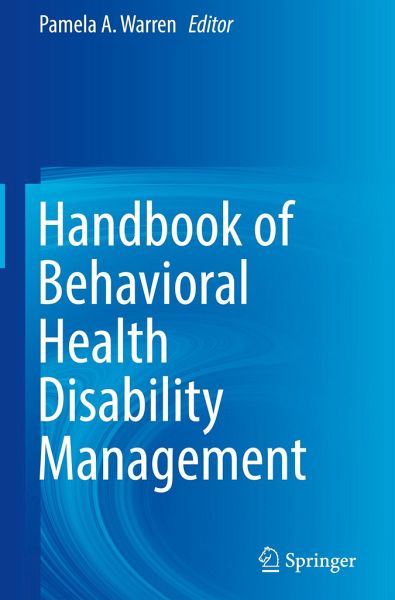
Handbook of Behavioral Health Disability Management

PAYBACK Punkte
49 °P sammeln!
This authoritative handbook provides an up-to-date, interdisciplinary understanding of behavioral health issues and their management within disability systems. It examines today's complex mismatches between providers, pinpointing related obstacles to relevant diagnosis, referrals, and care while making a solid case for better coordination and collaboration between primary care physicians and a wide range of disability and mental health specialists. Chapters review current findings on common job-related mental health and psychosocial issues, and guide readers through the tangle of insurance and...
This authoritative handbook provides an up-to-date, interdisciplinary understanding of behavioral health issues and their management within disability systems. It examines today's complex mismatches between providers, pinpointing related obstacles to relevant diagnosis, referrals, and care while making a solid case for better coordination and collaboration between primary care physicians and a wide range of disability and mental health specialists. Chapters review current findings on common job-related mental health and psychosocial issues, and guide readers through the tangle of insurance and legal concerns typically associated with disability cases. This elegant framework models more effective case management, leading to enhanced client satisfaction and functioning, and improved individual and system outcomes.
Among the topics covered:
A critique of the behavioral health disability system.
Systemic-caused iatrogenic behavioral health disability and contradiction between diagnostic systems.
Effective psychological evaluation and management of behavioral health concerns.
Behavioral health disability and occupational medicine-concepts and practices.
Physical therapy treatment and the impact of behavioral health concerns.
A neuroplastic model of secondary contribution to behavioral health disability: theory and implications.
With its practical solutions to large-scale health care problems, the Handbook of Behavioral Health Disability Management is necessary reading for health psychologists and professionals in rehabilitation, psychotherapy and counseling, occupational medicine, andallied fields as well as other stakeholders involved in the disability process.
Among the topics covered:
A critique of the behavioral health disability system.
Systemic-caused iatrogenic behavioral health disability and contradiction between diagnostic systems.
Effective psychological evaluation and management of behavioral health concerns.
Behavioral health disability and occupational medicine-concepts and practices.
Physical therapy treatment and the impact of behavioral health concerns.
A neuroplastic model of secondary contribution to behavioral health disability: theory and implications.
With its practical solutions to large-scale health care problems, the Handbook of Behavioral Health Disability Management is necessary reading for health psychologists and professionals in rehabilitation, psychotherapy and counseling, occupational medicine, andallied fields as well as other stakeholders involved in the disability process.












